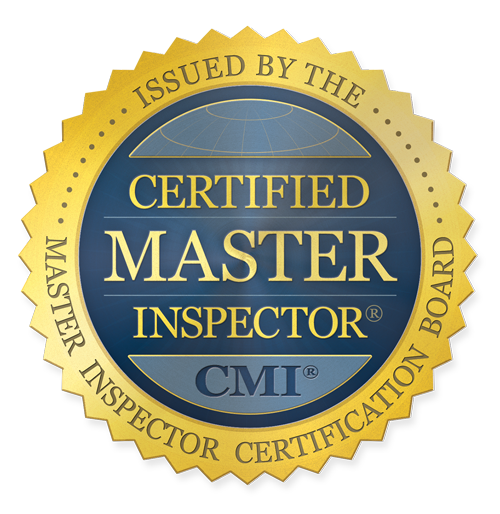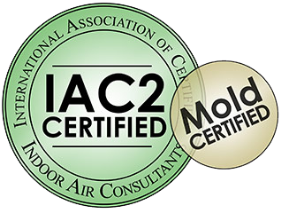You just bought a new construction home, and the sigh of relief is notable. What a treat it is not to worry about repairs, structural issues, or the trials and tribulations of an older fixer-upper, right?
Well, before you settle too deeply into the “maintenance-free” lifestyle, we highly recommend planning to schedule an 11-Month home inspection.
11-Month Inspections Extend A New Home’s Lifespan
Regardless of your contractor’s or developer’s integrity, everyone makes mistakes. In new home construction, Florida state law protects homeowners by requiring contractors to honor specific homeowner’s warranties. While these warranties may feel like a form of protection, the law states that it’s the owner’s responsibility to notice and report construction defects, flaws, mistakes, or errors within a relevant timeframe.
It’s also important to keep in mind that while the financial bottom line may be your first concern, construction defects left too long create a domino effect of damage that becomes more challenging, expensive, and time-consuming to correct. Plus, major contractor defects may compromise a building’s structural and system components to the point that it compromises the home’s lifespan.
Scheduling an 11-month, third-party home inspection is the best way to uncover any contractor defects that might have been missed or neglected for far too long.
11-Month Home Inspection Common Red Flags
Keep in mind that this inspection is not about accusing or blaming contractors. Even the best and most experienced professionals make mistakes. In fact, your contractor would rather repair an issue in the first year, when the effects are minor than in 10 or 20 years when a significant issue has caused tens of thousands of collars’ worth of cumulative collateral damage.
Here are some of the most common red flags we notice during an 11-month new construction home inspection:
1. Grading, foundation, or drainage issues
Local building department inspections are the first line of defense against any errors with grading, site drainage, and foundation pours. Contractors rarely look back once these inspections are completed, and the building permits are signed off unless an obvious issue arises. However, ground soil settles over time, and it could be that original work signed off immediately after completion isn’t holding up in the long term.
If this is the case, our experienced, InterNACHI-certified home inspectors will identify the issue and cite it on the report. The difference between identifying these issues now versus five, ten, or twenty years down the road. Over the long-haul, issues with grading, drainage, and structure lead to:
- Pooling water around your home and in the basement
- Wall rotation and irregularities
- Misaligned doors and windows
- Foundation cracks
- Cracks and irregularities in flooring
- Faster erosion of the earth around the home
- Shorter lifespan of concrete and walkways poured around the home
- Moisture issues that lead to structural rot
- Mold and mildew infestations
- Flooded landscaping, including more mud and post-storm cleanup and debris
Repair of grading, foundation, or draining issues can be major or minor, but sooner is always better.
2. Roofing installation errors
Roofs are an integral part of any house’s structural system, but they’re especially important in Florida, where high winds and violent rainfall are a hurricane season norm. Third-party home inspectors assess the roof and attic, looking for any telltale roof installation errors.
Common roofing red flags are:
- Misaligned or shoddy shingle application
- Faulty flashing
- Nails that penetrate through waterproofing materials
- Inadequate roof-wall attachments
- Issues with roof slope or drainage
- Undetected roof leaks
Your new home won’t feel like new for very long when roofing issues begin rearing their ugly presence via damp, rot, musty smells, or other home system failures.
3. Plumbing leaks
Some plumbing leaks announce their presence dramatically via flooding water you can’t ignore. However, most leaks occur slowly and in-between spaces so they’re not as noticeable until they’ve caused significant damage. Slow leaks that occur underneath the floors, in the attic, or between the walls may not leak in drips. Instead, they leak intermittently or in such small amounts that moisture wicks into absorbent structural materials.
Unfortunately, the continuous dampness leads to mold, mildew, and rot. Eventually, this will make itself known, but typically long after your new construction warranties expire.
Other plumbing issues revealed are:
- Improperly installed water heaters or water heaters that are the wrong size for the house
- Inappropriate plumbing fixtures or materials
- Plumbing fixture leaks
Again, a homeowner’s failure to notice or bring plumbing issues to a contractor’s awareness within the 12-month new construction warranty means having to foot the repair bill themselves. Imagine uncovering a leak during month 13, knowing it would have been taken care of for free had you only noticed it a few weeks before.
4. Electrical defects
Most homeowners assume contemporary electrical work means error-free electrical components. That is not necessarily the case. We frequently uncover issues with a home’s electrical work during our comprehensive new home inspections.
Some of the most common items on our inspection reports are:
- An electrical system that is incorrectly sized for the home
- Improper grounding
- Incorrectly wired outlets
- Missing switch plates
- Overloaded electrical panels
- Reversed polarity
While some of these issues are minor inconveniences, some put your house and your family at risk of sparking, electrocution, or electrical fires.
5. Inadequate or damaged attic insulation
Whole-home energy efficiency and comfort rely on adequate attic insulation. While the insulation’s R-value and quantity are probably sufficient (although not necessarily), it may have been damaged in the ensuing months. First and foremost, any potential leak or moisture issues may compromise attic insulation.
Then, any subcontractors or technicians who worked in the attic after the insulation was installed and signed off by the building inspector may have damaged or moved insulation during their work.
We’ll report inadequate or damaged attic insulation in our report, allowing your general contractor or their subcontractors to come back in and replace or update it as needed.
6. Additional issues
Other issues we commonly discover during an 11-month comprehensive home inspection include:
- Missing grout or caulking
- Sticky or misaligned doors, windows, or drawers
- Loose flooring or shower/bath tiles
- Inadequate air sealing or ventilation
- Incomplete railings
- Missing screws in cabinet and door hinges, as well as switch and electrical plates
- AC vents covered over by drywall (an HVAC and energy spending nightmare)
- Missing hardware
- Loose pavers
Just as you deserve to have the brand new construction home you counted on, your home’s contractor deserves the chance to repair construction defects as soon as possible to delay further damage or deterioration.
Schedule a Comprehensive New Construction Home Inspection
Super Inspection Pros performs 11-month new construction home inspections daily. We guarantee a 24-hour turnaround and provide detailed home inspection reports to pass on to your contactor and home insurance companies. Contact us to schedule an inspection, at 386-279-0802, and enjoy the peace of mind associated with a well-built home.

